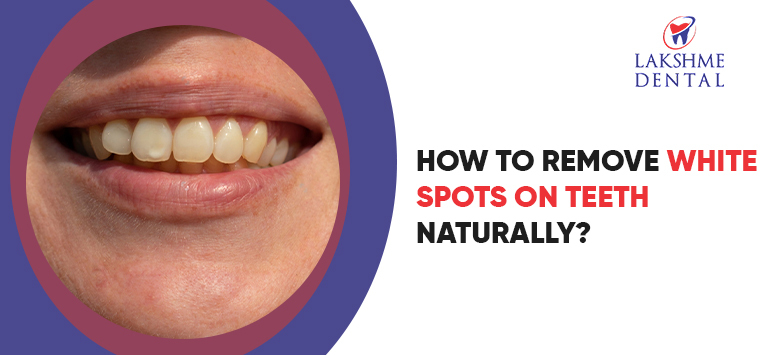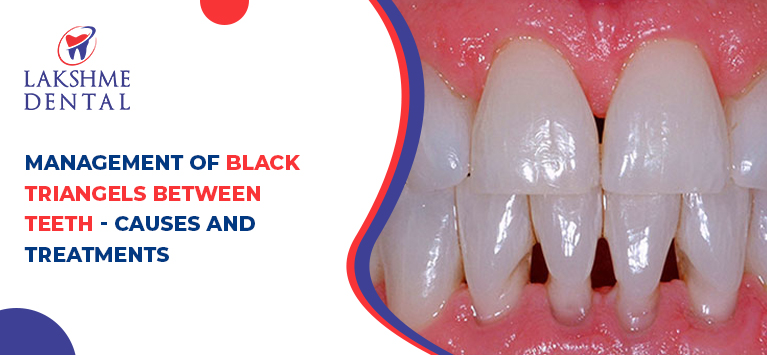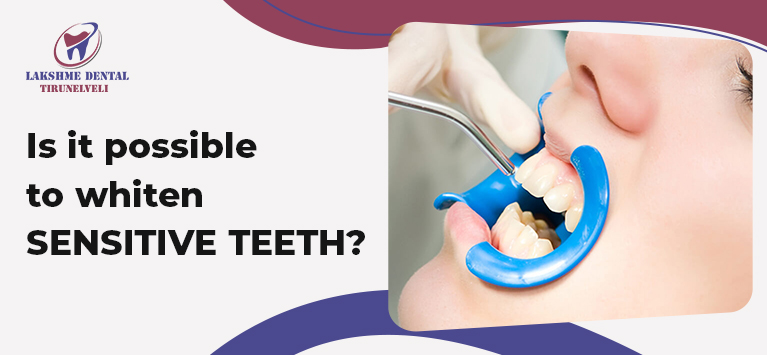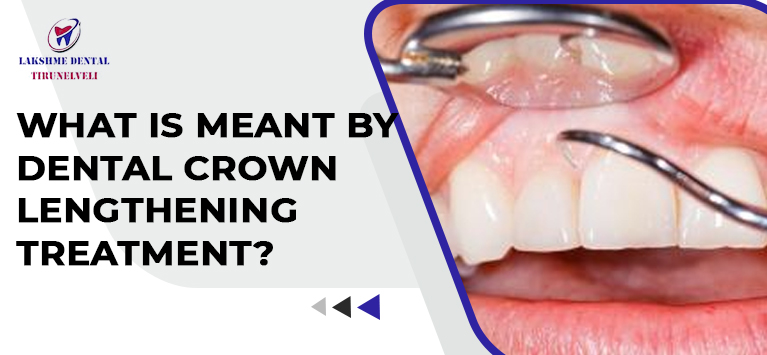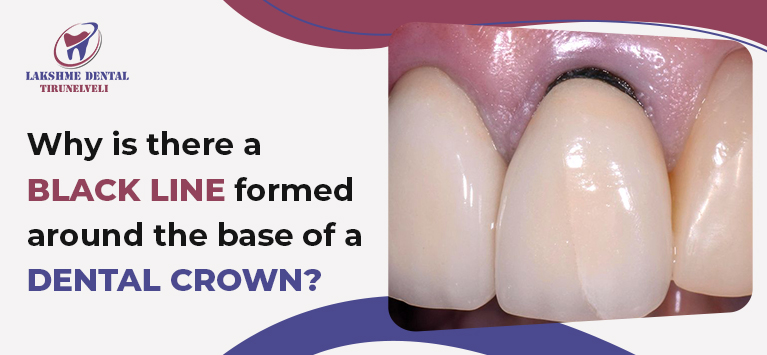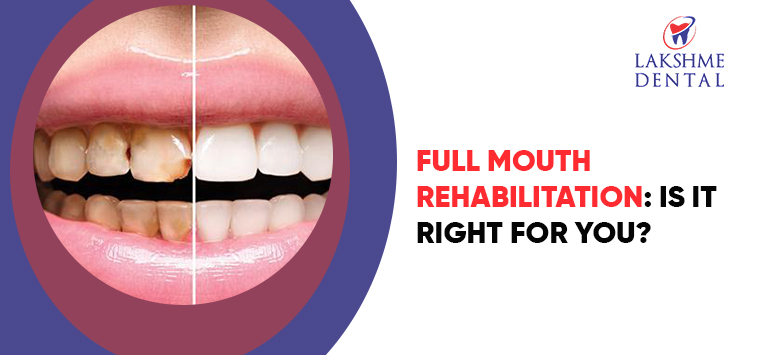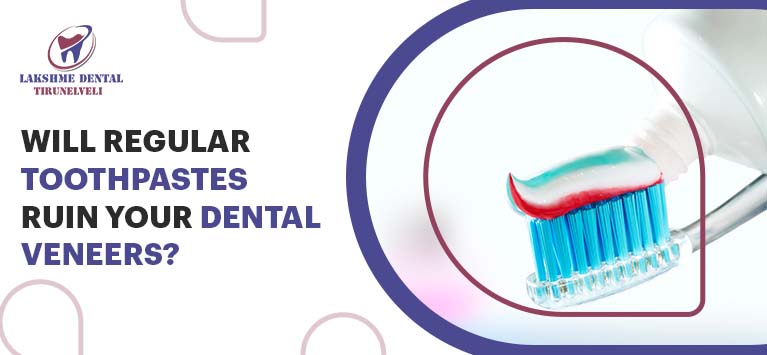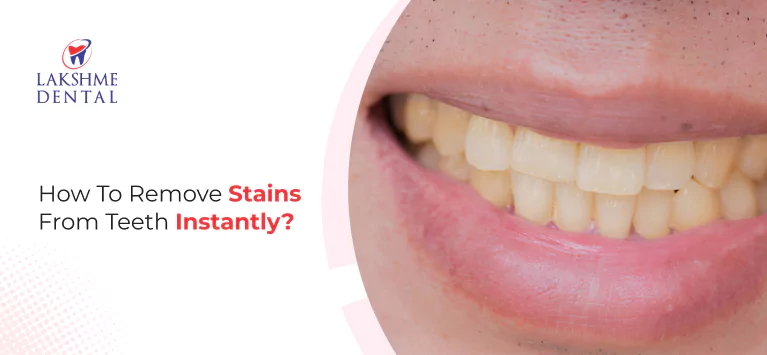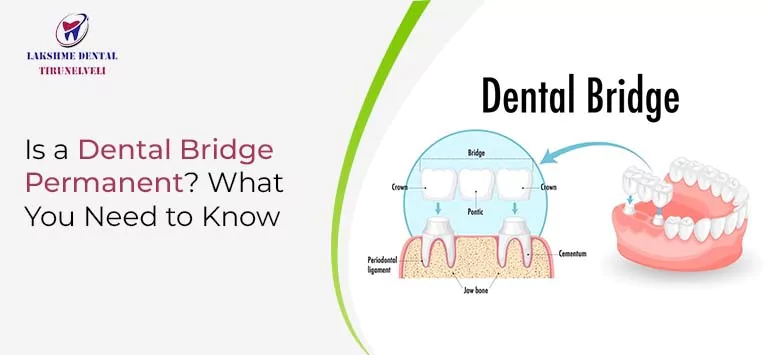
Is a Dental Bridge Permanent? What You Need to Know
A dental bridge is a frequently employed dental procedure to fill gaps left by missing teeth. Many patients wonder whether a dental bridge is a permanent solution or if it requires maintenance over time. Knowing the longevity, care requirements, and considerations of dental bridges can help individuals make informed decisions about their oral health. This comprehensive guide explores the permanence of dental bridges, how they work, their types, and maintenance tips. In this blog, you will also know about its pros and cons.
What is a Dental Bridge?
A dental bridge is a dental prosthetic device that is used to replace one or more missing teeth. It consists of artificial teeth (pontics) held in place by crowns placed on adjacent natural teeth or dental implants. These abutment teeth are typically crowned to provide a strong foundation for the bridge. Dental bridges are crafted to restore dental aesthetics, improve chewing function, prevent teeth shifting, and maintain facial structure.
Advantages of Dental Bridges
- Helps maintain the shape of your face
- Prevents remaining teeth from shifting out of place
- Distributes the force of chewing evenly across the teeth
Disadvantages of Dental Bridges
- Requires the alteration of healthy abutment teeth
- It can be more expensive than other tooth replacement options.
- Requires more extensive dental work compared to other options
Are Dental Bridges Permanent?
Dental bridges are not entirely permanent, but they can typically last between 5 to 15 years, with proper care and maintenance. The longevity of a dental bridge is influenced by several factors, including:
Oral Hygiene Habits
- Regular brushing and flossing help prevent plaque buildup, gum disease, and decay, which can compromise the bridge’s durability.
- Proper oral hygiene practices significantly extend the lifespan of dental bridges.
Type of Bridge
- Different types of bridges have varying durability and lifespan. For example, implant-supported bridges tend to offer superior stability and long-term survival compared to traditional bridges.
- Your selection of dental restoration significantly influences how long your dental bridge will last.
Proper Maintenance and Care
- Regular dental check-ups and professional cleanings help maintain the health of the bridge and surrounding teeth.
- Proper care and maintenance are crucial for prolonging the lifespan of dental bridges.
Overall Dental Care
- Maintaining the health of your remaining natural teeth through regular dental check-ups and cleanings contributes to the long-term success of your dental bridge.
- The general health of your natural teeth and supporting structures plays a role in the longevity of your dental bridge.
Individual Factors
- Lifestyle habits, such as avoiding bad habits and practicing proper oral hygiene, can positively impact the longevity of dental bridges.
- The overall health and habits of an individual can impact how durable dental restorations are over time.
Material Quality
The materials used in the construction of the bridge, such as porcelain, ceramics, or metal alloys, can affect its durability and lifespan.
Dental Bridge Placement
The location of the bridge in the mouth can impact its longevity. For example, bridges that replace molars undergo more stress from chewing compared to those replacing front teeth.
Tooth and Gum Health
The health of your teeth and gums is critical in maintaining the integrity and functionality of your dental bridge.
Bite Force and Habits
Avoiding habits like chewing on ice or using your teeth to open packages can help prevent damage to your dental bridge.
Diet
Consuming a balanced diet that is low in sugar can help prevent decay around the bridge.
By knowing about these, individuals can significantly extend the lifespan of their dental bridges.
Factors Affecting Dental Bridges Lifespan
Several factors play a crucial role in determining how long a dental bridge will last and maintain its functionality. Below they are:
Oral Hygiene
Proper brushing, flossing, and regular dental check-ups are essential for maintaining the longevity of a dental bridge.
Dental Health
Underlying dental issues, such as gum disease or tooth decay, can compromise the stability and lifespan of a dental bridge.
Bite Alignment
Proper bite alignment is crucial for evenly distributing the forces of chewing, which can extend the lifespan of a dental bridge.
Material Quality
The quality of the materials used in the construction of the bridge can also impact its durability.
These factors can help you maximize the lifespan of your dental bridge, ensuring lasting functionality and oral health.
Replacing Dental Bridges
- If a dental bridge becomes damaged, worn, or loose, it will need to be replaced.
- Replacing a dental bridge typically involves removing the old bridge and creating a new one. This process can be a more complex and costly procedure than the initial bridge placement.
Caring for Dental Bridges
Proper care and maintenance are essential for ensuring the longevity of a dental bridge. Some tips for caring for your dental bridge are as follows:
Brushing and Flossing
- Brush your teeth and the area around the dental bridge twice a day using a soft-bristled toothbrush.
- Floss daily, taking care to gently floss under the bridge to remove plaque and food particles.
- Use an interdental brush or floss threader to clean the areas around the bridge.
Regular Dental Visits
- Visit your dentist regularly for check-ups and cleanings, typically every six months.
- Your dentist can monitor the condition of your dental bridge and address any issues before they become more serious.
Avoiding Certain Foods
- Avoid hard, sticky, or chewy foods that could damage the bridge.
- Be cautious when eating hard foods, such as nuts or hard candies, as they can potentially crack or dislodge the bridge.
Protecting Your Dental Bridge
- If you grind your teeth at night, your dentist may recommend a nightguard or other protective device to prevent damage to your dental bridge.
- Avoid habits like chewing on ice or using your teeth to open packages. These can also compromise the integrity of your dental bridge.
Following these guidelines for caring for your dental bridge ensures it stays strong and functional for years to come.
Alternatives to Dental Bridges
While dental bridges are a common solution for missing teeth, they are not the only option. The following are some alternative cure options to consider:
Dental Implants
- Dental implants are artificial tooth roots surgically placed into the jawbone to support a replacement tooth or bridge.
- Implants are a more permanent solution, as they are designed to last a lifetime with proper care.
- Implants can be more expensive than dental bridges, but they offer a more stable and natural-looking solution.
Partial Dentures
- Partial dentures are dental appliances often used among elderly to replace one or several missing teeth.
- They are a more affordable option compared to dental bridges or implants, but they may not be as stable or natural-looking.
No Tooth Replacement
- In some cases, it may be possible to leave the gap from a missing tooth without any replacement.
- This option is generally only recommended if the missing tooth is not visible. It is also prescribed if the patient is unable to undergo more extensive dental work.
These alternatives to dental bridges provide individuals with options to consider based on their unique dental needs and preferences. Consulting with a dentist will help determine the most suitable treatment for maintaining oral health and restoring a confident smile.
Wrapping Up
Dental bridges can be a reliable and effective solution for replacing missing teeth, but they are not a permanent fix. With proper care and maintenance, a dental bridge can last many years, but it will eventually need replacement. When considering a dental bridge, weigh the pros and cons and explore alternative options to find the best solution for your individual needs. Understanding the longevity and care requirements of dental bridges. By this, you can make an informed decision and maintain a healthy, beautiful smile for years to come.

